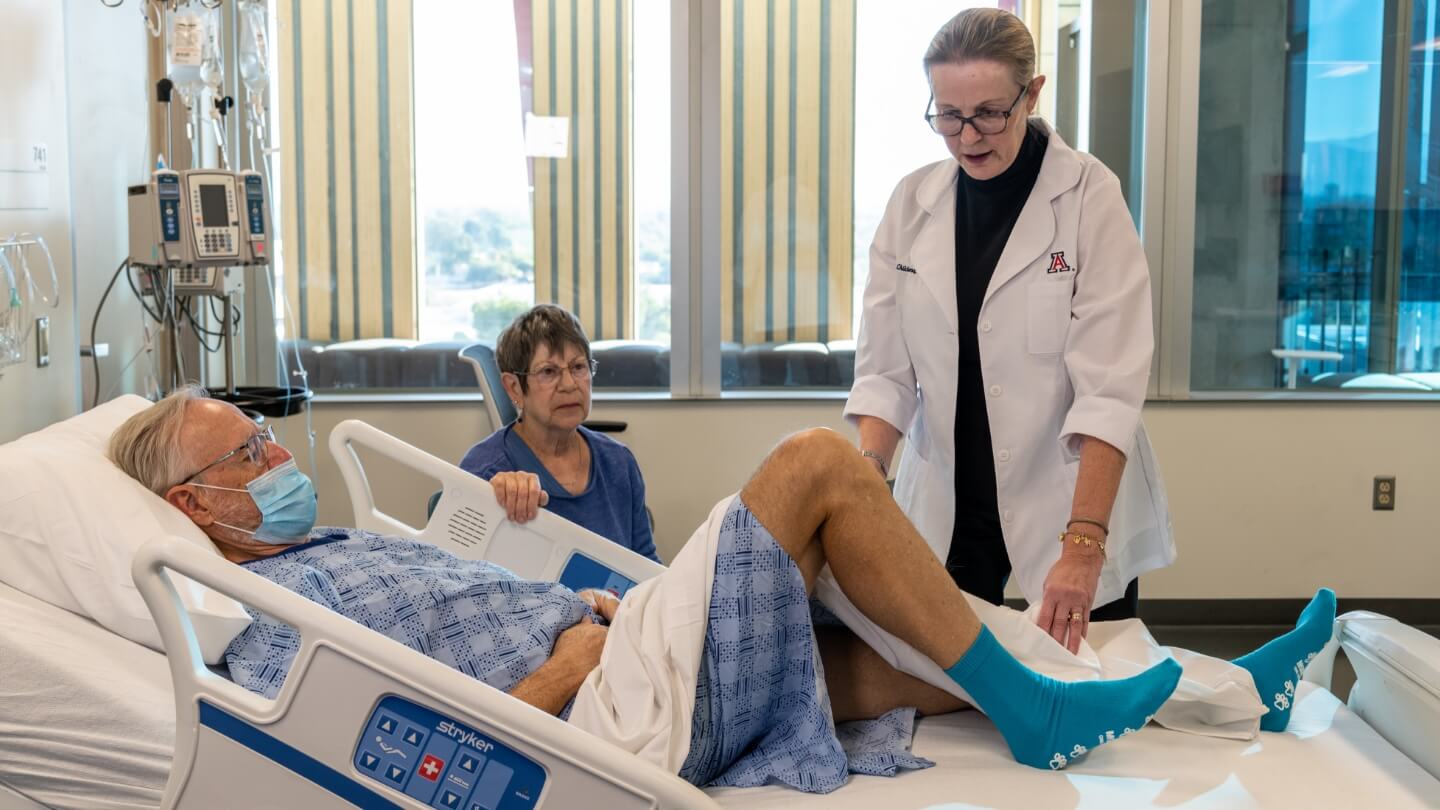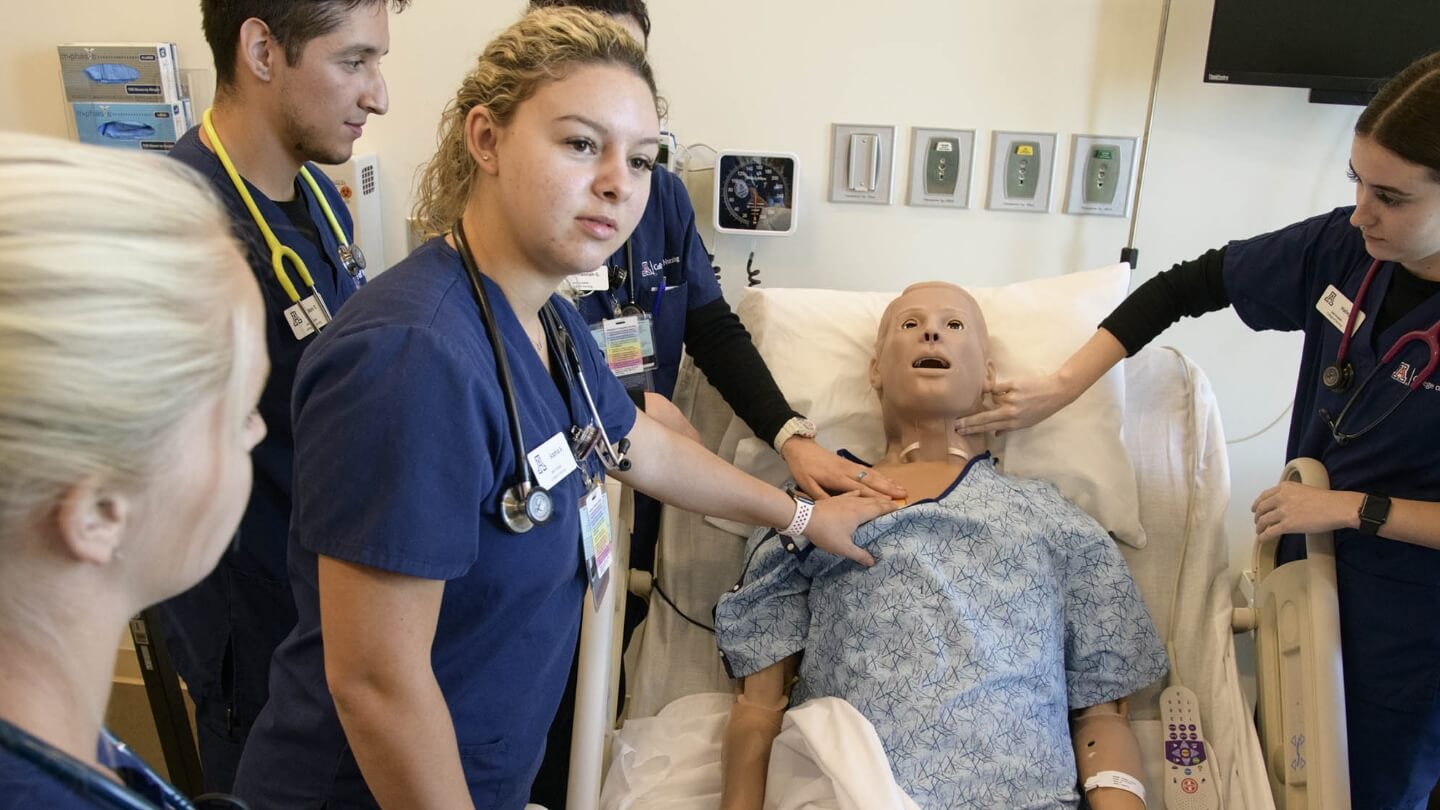A new Center for Excellence within the R. Ken Coit College of Pharmacy is driving a renewed college-wide effort focused on achieving healthy longevity and developing new therapeutics for age-related diseases.
The center is designed to address an increasingly relevant challenge as the human population gets older and lives longer. According to a 2022 report by the Alzheimer’s Association, as the size of the U.S. population age 65 and older continues to grow, so, too, will the number and proportion of Americans with Alzheimer’s disease or other dementia. The same report states that by 2050, the number of people aged 65 and older with Alzheimer’s dementia is projected to reach 12.7 million.
Bernardo Lemos, PhD, and Haining Zhu, PhD, both holders of an R. Ken and Donna Coit Endowed Chair in Aging and Neurodegenerative Diseases, are co-directors of the new Coit Center for Longevity and NeuroTherapeutics. They will bring together faculty members who have similar research interests, pool resources, and develop new therapeutics to address age-related diseases.
“Ultimately, the study of longevity, aging and the mechanisms of neurodegeneration – and their connection to specific diseases – are all critical in finding new interventions and discovering new drug therapies,” Lemos said.
Lemos’ research focus is on genetics and epigenetics, which is the study of how interventions like calorie restriction and environmental exposures impact the way genes function and affect aging. He is specifically interested in biomarkers of aging and epigenetic clocks in the context of Alzheimer’s disease.
Zhu’s research focus is on neurodegenerative diseases, specifically Lou Gehrig’s disease and frontotemporal dementia. He is interested in the causes of neuron death, dysfunctions of the neurological system leading to disease and the discovery of novel therapeutics.
Despite their different research foci, they both have a common theme and challenge bringing them together.
“We can be diverse scientifically. Some faculty are focused on molecular pathways and different mechanisms. Some are more clinical or translational,” Zhu said. “But in the end, we’re both interested in longevity, the process of healthy aging, and helping aging patients and the overall general population.”




